Scientists have discovered the world's largest asteroid impact zone
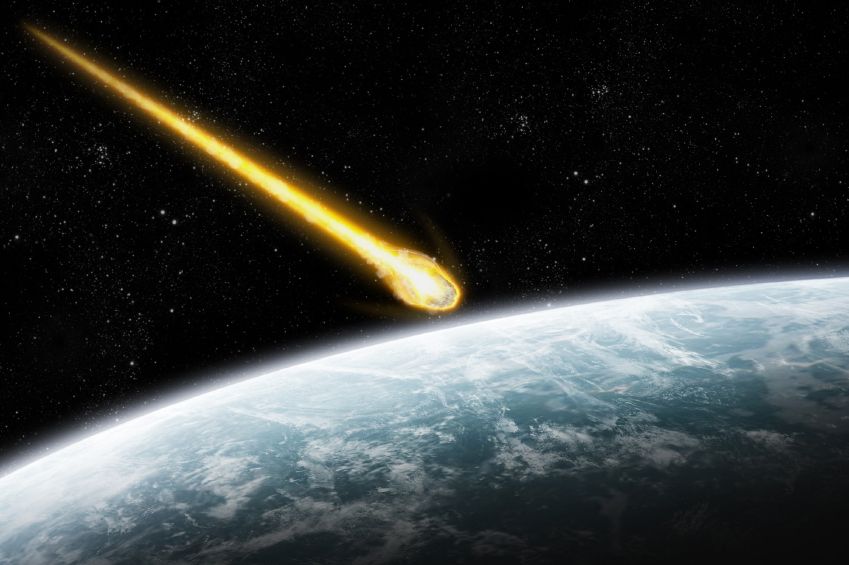

You've heard about asteroids, but you've never seen impacts quite this big.
Scientists from the Australian National University (ANU) have discovered an asteroid impact zone that's nearly 248 miles wide in central Australia. The twin-impact zone is the result of an asteroid that broke in half just before hitting the earth.
The researchers found the impact zone while conducting geothermal research that included drilling. They found remnants of the impact, such as free rock that had been turned into glass, inside the Earth's crust. The scientists described the findings in the journal Tectonophysics.
Subscribe to The Week
Escape your echo chamber. Get the facts behind the news, plus analysis from multiple perspectives.

Sign up for The Week's Free Newsletters
From our morning news briefing to a weekly Good News Newsletter, get the best of The Week delivered directly to your inbox.
From our morning news briefing to a weekly Good News Newsletter, get the best of The Week delivered directly to your inbox.
The scientists still don't know how long ago the asteroid impact was, but they believe the event was powerful enough to cause a mass extinction. Andrew Glikson, one of the scientists from ANU, believes the asteroid hit Earth at least 300 million years ago, but the scientists haven't been able to find a known extinction that lines up with the impact zone.
“At this stage, we do not have all the answers,” Glikson told Australia's ABC News, “but there has been a lot of interest, and people are certainly interested in any impact on the dinosaurs.”
Sign up for Today's Best Articles in your inbox
A free daily email with the biggest news stories of the day – and the best features from TheWeek.com
Meghan DeMaria is a staff writer at TheWeek.com. She has previously worked for USA Today and Marie Claire.
-
 Kemi Badenoch's 'policy void'
Kemi Badenoch's 'policy void'Talking Point Conservative leader must convince voters the party has more to offer than the 'same old magic beans'
By The Week UK Published
-
 Should Los Angeles rebuild its fire-prone neighbourhoods?
Should Los Angeles rebuild its fire-prone neighbourhoods?Talking Point The latest devastating wildfires must be a wake-up call for Los Angels to 'move away from fire-prone suburban sprawl'
By The Week UK Published
-
 Patmos: an island at the end of the world
Patmos: an island at the end of the worldThe Week Recommends Small Greek island has a rich history and ties to the Christian tradition
By The Week UK Published
-
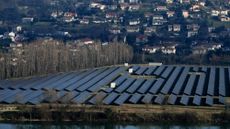 Europe records big leap in renewable energy
Europe records big leap in renewable energySpeed Read Solar power overtook coal for the first time
By Peter Weber, The Week US Published
-
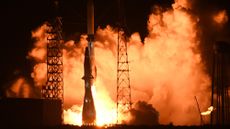 Blue Origin conducts 1st test flight of massive rocket
Blue Origin conducts 1st test flight of massive rocketSpeed Read The Jeff Bezos-founded space company conducted a mostly successful test flight of its 320-foot-tall New Glenn rocket
By Peter Weber, The Week US Published
-
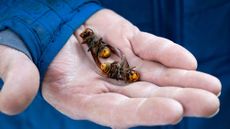 US won its war on 'murder hornets,' officials say
US won its war on 'murder hornets,' officials saySpeed Read The announcement comes five years after the hornets were first spotted in the US
By Peter Weber, The Week US Published
-
 Dark energy data suggest Einstein was right
Dark energy data suggest Einstein was rightSpeed Read Albert Einstein's 1915 theory of general relativity has been proven correct, according to data collected by the Dark Energy Spectroscopic Instrument
By Peter Weber, The Week US Published
-
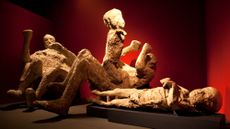 New DNA tests of Pompeii dead upend popular stories
New DNA tests of Pompeii dead upend popular storiesSpeed Read An analysis of skeletal remains reveals that some Mount Vesuvius victims have been wrongly identified
By Peter Weber, The Week US Published
-
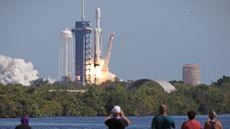 NASA's Europa Clipper blasts off, seeking an ocean
NASA's Europa Clipper blasts off, seeking an oceanSpeed Read The ship is headed toward Jupiter on a yearslong journey
By Peter Weber, The Week US Published
-
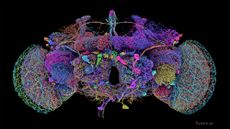 Detailed map of fly's brain holds clues to human mind
Detailed map of fly's brain holds clues to human mindSpeed Read This remarkable fruit fly brain analysis will aid in future human brain research
By Peter Weber, The Week US Published
-
 Blind people will listen to next week's total eclipse
Blind people will listen to next week's total eclipseSpeed Read While they can't see the event, they can hear it with a device that translates the sky's brightness into music
By Peter Weber, The Week US Published